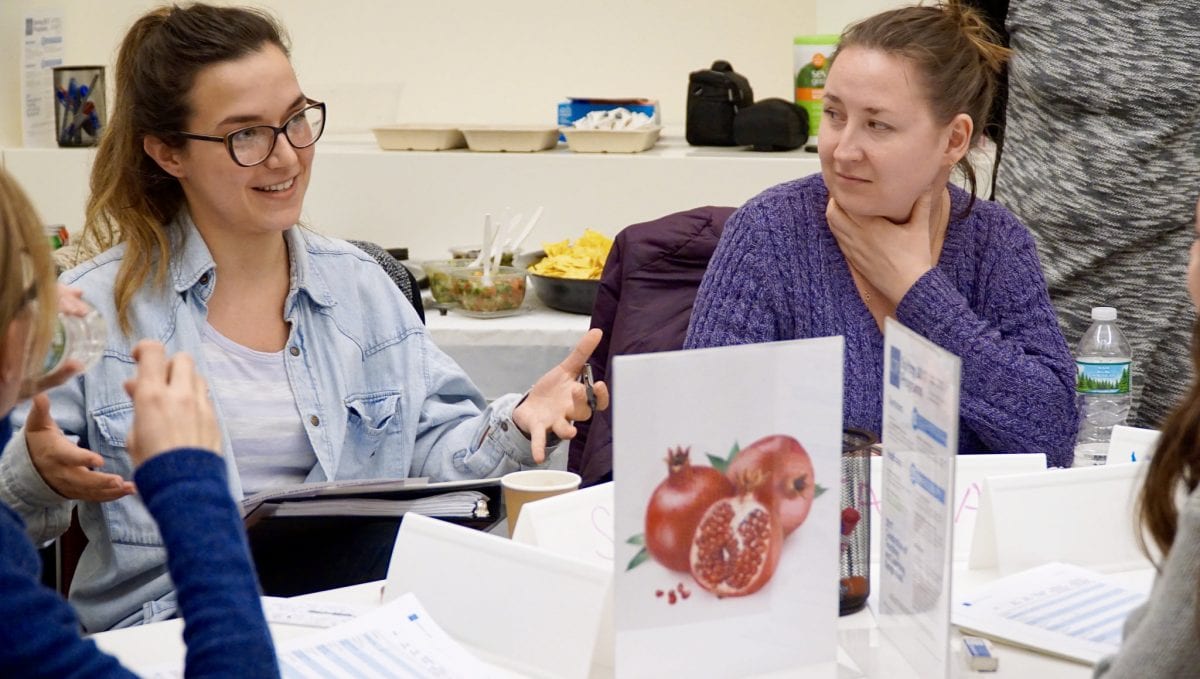Registration Open: CTLgrads Learning Communities

CTLgrads Learning Communities are interdisciplinary three-part series on teaching and learning topics, designed and co-facilitated by CTL Senior Lead Teaching Fellows. By participating in these deeper multi-session discussions of the teaching literature with other graduate student instructors, you will develop new frameworks to innovate your teaching.
This fall, LCs will discuss metacognition, technology, and interdisciplinary approaches to teaching. Enrollment is limited. Register via the links below!
Interdisciplinary Teaching and Learning
It is both a virtue and a challenge of the liberal arts system that our classes are composed of students pursuing a variety of majors with varying levels of preparation in our particular field. How can we motivate students who enter our classroom with different learning goals than we might have for them? How can a greater awareness of teaching and learning practices in other disciplines inform and improve our teaching?
Led by Senior Lead Teaching Fellows Liz Bailey (Chemistry) and Alex Fabrizio (English), this three-part series will provide readings, discussion, and strategies for thinking beyond disciplinary approaches to help you diversify your own teaching and better engage students with different backgrounds. Join the conversation from 2:00pm – 3:30pm on Tuesdays October 17, October 31, and November 14 in Butler 213. You can register for upcoming sessions here.
Disciplinary Assumptions: This first session will cultivate our interdisciplinary awareness as instructors. As a group, we will discuss and compare our discipline-specific assumptions, expectations, and teaching practices. We will begin to consider how we can reinvigorate our own teaching practices through connections and cross-pollinations.
Cross-Disciplinary Techniques: This second session will focus on engaging the diverse students in our classes by considering varying student expectations and definitions of success. During the session, we will identify transferable skills across the curriculum, such as writing and visual awareness, and explore how these skills can be fostered in our own classes.
Your Interdisciplinary Classroom: In this final session, we will workshop specific ideas and lesson plans that incorporate the ideas of interdisciplinarity developed in the earlier sessions. We encourage participants to bring in new ideas for lesson plans; in addition, we will also examine model lesson plans and provide feedback.
On Metacognition: Owning Our Learning
The reflective component of pedagogy is critical for both teachers and students, but it is often neglected in the classroom. This learning community will focus on how metacognition can be effective in maximizing our teaching and learning skills. Metacognition is an active learning technique involving thinking about one’s own thinking. Thus, metacognitive practices empower students and teachers alike to take ownership over learning.
Led by Senior Lead Teaching Fellows Braden Czapla (Mechanical Engineering) and Almu Marin-Cobos (LAIC), this three-part series will address the many roles metacognition assumes in a learning environment. Join the conversation on October 2, October 16, and October 30 in Butler 213. Please bring your laptop! You can register for upcoming sessions here.
How People Learn: #HackingMetacognition: For the first session, we will unpack the meaning of metacognition. We will focus on the research surrounding metacognitive learning, such as the benefits of self-reflection and giving students agency over learning, and what happens when students are lacking in self-awareness of their own knowledge.
Take a Stand: Metacognition in the Classroom: The second session will delve into the use of metacognitive practices as teaching tools. Short classroom roleplays will be used to demonstrate how they may be used in classrooms of all disciplines.
The Doppelgänger: Projecting your Teaching Practice: The third session will explore how metacognitive practices can be used to better communicate our approach to teaching and how to craft a virtual persona. In particular, teaching statements will be discussed.